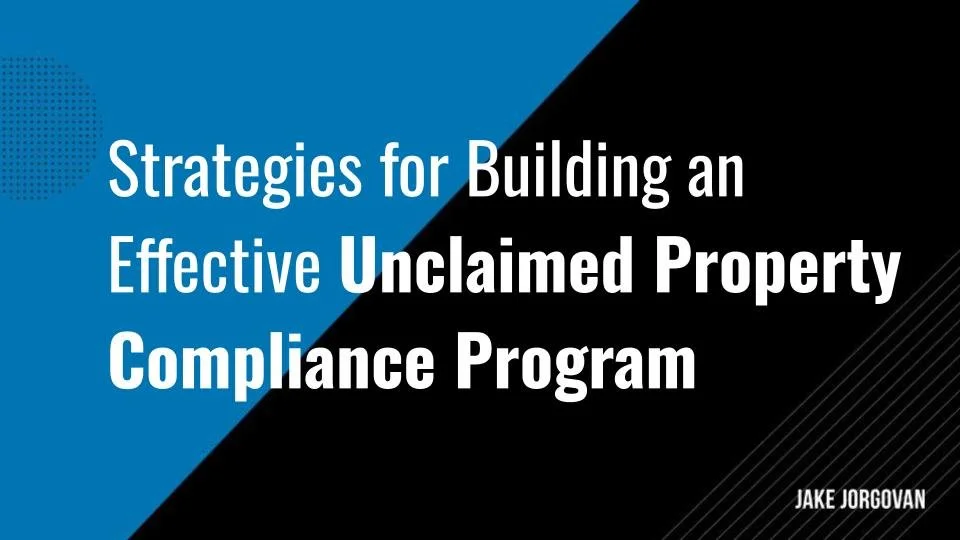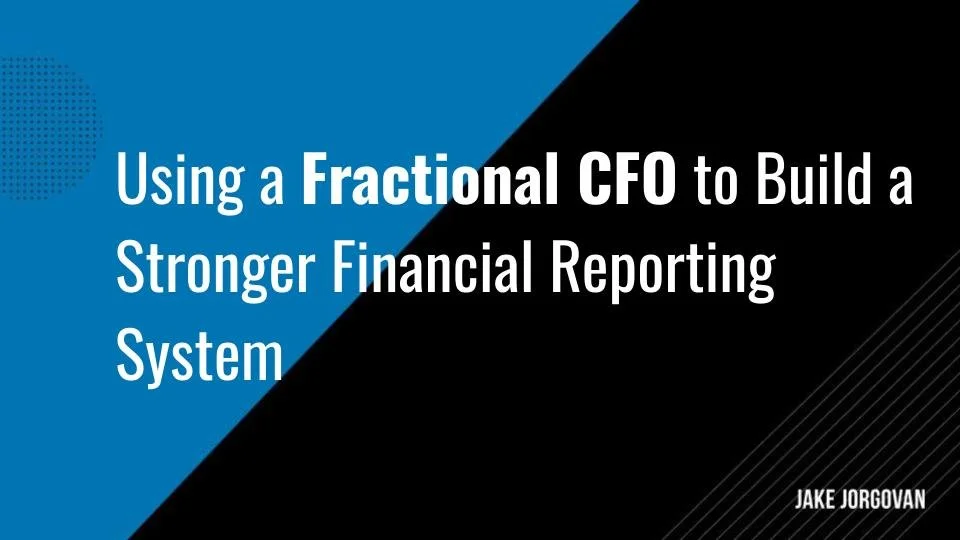How to Interview Account Managers: Top Tips for Hiring the Best in 2025
Hiring great account managers is tough, and it's getting even tougher day by day.
Today’s companies don’t just need someone with a polished resume.
They need relationship-builders, problem-solvers, and client champions who can handle complexity and deliver results.
And the competition is heating up. There are over 152,000 open account manager roles in the U.S., with demand projected to grow 5% by 2028.
That’s why having a smarter interview process makes all the difference.
In this article, you’ll get:
A breakdown of the key skills to look for in account manager candidates
Interview questions that actually surface real-world capabilities (not canned answers)
Tips to spot red flags and highlight standout candidates
Whether you're hiring your first account manager or scaling a seasoned team, this guide gives you practical, actionable tactics to streamline your hiring and keep your clients happy.
So, let’s dive in.
P.S. Want help scaling your team with standout account managers? Alpha Apex Group connects you with top-tier talent who deliver results.
Who is the Account Manager?
An Account Manager is a professional responsible for nurturing client relationships, keeping customers satisfied, and driving revenue growth through service delivery and retention.
But this role isn’t just about being friendly on calls.
Account managers act as the bridge between the client and the company. They ensure that clients are happy, their needs are met, and that the services or products provided are helping them succeed.
Here’s a closer look at what the role really involves:
Core Responsibilities of an Account Manager
Account Managers wear a lot of hats, but it all centers around making sure the client relationship works.
Their main responsibilities typically include:
Managing and growing client accounts
Coordinating with internal departments to meet project requirements
Spotting upsell and cross-sell opportunities to drive business growth
Tracking deliverables and timelines, and ensuring smooth execution
Handling feedback and navigating complex client situations with tact
It’s a balancing act between client needs, company resources, and strategic outcomes.
Account Manager Key Competencies
Knowing the job description is one thing, knowing how to spot someone who’s actually good at it is another.
Great Account Managers show a mix of people skills, business sense, and execution power.
They’re the ones who don’t just manage: they lead, influence, and push projects forward.
Here’s what to look for:
Relationship management: Not just talking, they know how to build trust, manage expectations, and maintain long-term partnerships.
In fact, companies with a well-defined account management strategy are over 3.1 times more likely to achieve 20% or greater revenue growth in their key accounts.
Sales awareness: They understand sales strategies and can help surface new opportunities from existing clients.
Problem solving: Whether it’s a missed deadline or a client complaint, they handle it without drama.
Collaboration: They work well with others, from sales to creative to tech, keeping everyone on the same page.
Important note: Companies with strong collaboration report 21% higher profitability compared to those with low collaboration. Additionally, 86% of employees and executives identify poor communication and lack of teamwork as key reasons for workplace failures, emphasizing the importance of effective collaboration.
Client Insight: They develop a deep understanding of what the client wants, even when it’s not clearly stated.
Account Manager Skills
The real magic happens when core competencies show up as everyday skills.
You want someone with strong communication skills, who can keep lines of communication open across teams and clients.
Turns out, communication skills top the list of what employers want in new hires, scoring a solid 4.56 out of 5 in one study.
Even more interesting?
About 74% of employers say they'd take strong communication skills over technical know-how any day.
Time management skills are equally essential.
An effective account manager should be able to meet tight deadlines, prioritize tasks, and maintain momentum, especially when balancing multiple clients.
Negotiation skills matter too, especially when resolving client complaints or securing renewals.
About 75% of managers say weak negotiation skills hit their company’s bottom line hard.
And get this: over half of all deals (54%, to be exact) fall through just because of bad communication during negotiations.
Finally, don’t overlook the power of emotional intelligence. Research indicates that 90% of top performers have high emotional intelligence, and EQ accounts for 58% of job performance across all types of jobs.
An account manager who can stay calm under pressure, understand client emotions, and respond with empathy is a true asset.
That’s gold.
Now that you know what the role’s all about, let’s dive into how to prepare for the interview and spot a strong candidate fast:
How to Prepare for the Account Manager Interview?
The best interviews don’t happen by chance; they’re built on research, structure, and knowing exactly what you’re looking for.
Review the Candidate’s Background
As mentioned by Richard Branson (English business magnate):
“Hiring the right people takes time, the right questions, and a healthy dose of curiosity.”
Start with the basics: scan their resume for relevant experience, recent roles, and any signs they’ve managed client relationships directly.
Check for alignment with your company size and industry.
Have they worked with similar internal teams?
Do they understand how to handle tight deadlines or navigate client needs from company to company?
Look at their LinkedIn or online presence; it can give you insight into their communication style and professional growth mindset.
You must walk into the interview already knowing the key areas to dig into.
Pro tip: Tools like Humantic AI or Crystal Knows can analyze a candidate’s online presence to reveal their personality and communication style. This helps you tailor your interview questions and spot potential red flags ahead of time.
Develop a Structured Interview Plan
Once you’ve reviewed the candidate, build a plan that actually reflects what the role demands.
Define what success looks like, whether it’s managing key clients, handling client concerns, or driving growth opportunities.
Use that to shape a flow that includes scenario-based discussions and real-world situations, not just resume talk.
If it’s a manager position, make space to test leadership mindset and how they work with internal teams.
As Jim Rohn (American entrepreneur, author, and motivational speaker) once said:
"The challenge of leadership is to be strong, but not rude; be kind, but not weak; be bold, but not bully; be thoughtful, but not lazy; be humble, but not timid; be proud, but not arrogant; have humor, but without folly."
Your goal is to leave the interview with real, tangible signals, not vague impressions or guesses.
Pro tip: Try using tools like Notion or Airtable to build a repeatable interview template. They make it easy to track answers, rate responses, and ensure every candidate gets a fair shot at the same key scenarios.
With preparation is done, it’s time to focus on running the interview and getting real insight into how they’ll perform.
That brings us to the next section:
How to Conduct the Interview with an Account Manager
Once you’re face-to-face with the candidate, how you run the interview matters just as much as what you ask.
You want structure without stiffness, clarity without pressure, and most of all, you want to walk away confident that this person can thrive in the account manager role.
Here’s how to lead the interview:
1. Set the Tone
Start by making the space feel conversational, not clinical.
A quick, casual opener and a brief overview of how the interview will flow can go a long way. It helps lower stress and gives you a better chance of seeing who the candidate really is.
This tone opens the door for more honest dialogue and better signals about culture fit.
Pro tip: Candidates mirror your energy. Set a relaxed, confident tone and you’ll get more authentic responses right from the start.
2. Practice Active Listening and Strategic Probing
Listen closely, not just to what the candidate says, but to what’s between the lines.
Are their answers vague?
Do they avoid taking ownership?
Are they skipping over actual outcomes?
Use thoughtful, low-pressure follow-up questions to dig deeper and get the full picture.
The purpose is to uncover how they handle challenges, collaborate with others, and drive results in real-world situations.
In fact, active listening really matters; about 79% of interviewers think it’s a key part of judging candidates.
Pro tip: Silence is powerful. After they respond, pause for a moment. That small gap often encourages them to reveal something real and unrehearsed.
3. Evaluate Hard Skills and Competencies
Now, it’s time to zoom in on capability.
What tools have they used?
What targets have they hit?
How do they prioritize when everything’s on fire?
Focus on how their past experience lines up with the actual demands of the role.
Remember: You're not looking for perfect, you’re looking for prepared.
Pro tip: Don’t just ask what tools they’ve used. Ask how they used them to solve a problem. Context shows capability.
4. Look for Strong Soft Skills
Hard skills get them in the door. Soft skills keep clients from walking out.
Soft skills are just as important as the technical stuff: 92% of hiring pros say they weigh them just as much, if not more.
Pay close attention to how they talk about collaboration, conflict, and high-pressure situations.
Do they take feedback well? Stay composed? Show awareness of team dynamics?
The most revealing signals often come from how they describe their everyday interactions, not just their biggest wins.
Pro tip: Watch how they describe team successes versus individual achievements. Those subtle shifts in “we” versus “I” language reveal their true collaboration style.
With your interview game plan locked in, now let’s explore the must-ask questions that separate the top contenders from the rest:
Must-Ask Interview Questions for an Account Manager
The right questions reveal everything.
Skills, mindset, emotional intelligence, and how a candidate actually performs under pressure all come out when you ask with purpose.
Here’s how to structure your questions across three categories that bring the full picture into focus:
Behavioral Questions
These questions focus on how the candidate handled real situations in the past.
The idea is simple: past behavior is one of the best indicators of future performance.
Ask:
Tell me about a time you managed a demanding client relationship. What was your approach?
Describe a situation where you had to collaborate with multiple internal teams to meet a tight deadline.
Share an example of how you handled negative feedback from a client.
What’s the most difficult client complaint you’ve had to resolve?
Talk about a time when you exceeded client expectations. How did you do it?
🚩Watch out for: Vague answers, blaming others, or skipping over outcomes. If they can’t clearly explain what they did, it’s a red flag.
Situational Questions
These questions test how a candidate would handle scenarios they might face on the job.
You’re not looking for hypotheticals, you’re looking for their thought process and judgment.
Ask:
How would you respond if a key client suddenly expressed dissatisfaction with your team's work?
What would you do if you noticed that a client’s expectations were misaligned with the project scope?
How would you handle a conflict between two internal teams that’s affecting your client delivery?
If your sales targets were slipping mid-quarter, what would your next move be?
Imagine a long-term client is hinting at leaving. What do you do first?
🚩Watch out for: Overly idealistic responses with no practical detail. If everything sounds too perfect or they avoid taking responsibility, that's a flag.
Technical and Role-Specific Questions
This is where you dig into whether the candidate actually has the tools and experience to do the job.
You're checking for fluency in the role: not just theory, but how they apply what they know.
Ask:
What CRM tools have you used, and how do you use them day to day?
How have you contributed to revenue growth in previous roles?
Which tools or systems have you used for managing client accounts?
How do you prioritize tasks across multiple client deadlines?
How do you align your work with company sales strategies?
🚩Watch out for: Generic buzzwords or shallow answers. If they can’t speak clearly about metrics, tools, or processes they’ve actually worked with, it could be a sign they’re lacking real experience.
Once the interview wraps, the real decision-making begins.
Let’s walk through what happens next and how to keep the process sharp and objective:
Post-Interview Process
The interview’s over, but the work isn’t.
How you handle the next steps matters just as much as everything that came before.
This is where clarity, structure, and good instincts come together to help you make the right call, instead of the fastest one.
Here’s how to wrap things up with confidence:
Scoring and Comparison
Right after the interview, lock in your thoughts while everything’s still fresh.
Use a structured scoring system based on the criteria you defined earlier.
Keep it simple and consistent across all candidates.
Then compare:
Who clearly meets the requirements?
Who brings added value beyond the basics?
Who demonstrated confidence, clarity, and relevant real-world examples?
Remember: This step focuses on identifying the candidate who best aligns with the role, the team, and your clients' needs. Personal preferences should not drive the decision; fit and capability should.
Reference Checks
You’re almost there, but don’t skip this step.
Yes, reference checks are still a thing. Around 87% of employers do them when hiring.
Moreover, 58% of employers have identified discrepancies on resumes. This empahsizes the need for thorough verification.
These checks can confirm strengths, clarify any doubts, and offer insight into how the candidate actually performed in their previous roles.
Reach out to people who managed them directly or worked closely with them.
Ask focused questions around ownership, reliability, and how they handled pressure.
You want a clear sense of how they operated daily and what working with them was really like.
Making the Offer
Act promptly once you have gathered feedback, reviewed scores, and identified your top candidate.
Strong candidates do not remain available for long, especially in competitive hiring environments.
Present a clear offer that outlines the role, compensation, growth opportunities, team culture, and how the candidate will contribute to the company’s broader goals.
This is your chance to position your company as the place where they can truly succeed and grow.
And do not leave other candidates in the dark. Close the loop respectfully with those who were not selected.
Bring the Right Account Manager on Board
Hiring the right account manager is a strategic move that can transform your client relationships and boost your team’s performance.
Rushing the process rarely leads to long-term success.
A thoughtful approach, rooted in preparation, purposeful questions, and a balanced assessment of both character and capability, makes all the difference.
Use this guide as your blueprint.
Refine it to match your company’s unique needs, share it with your hiring team, and make every interview an opportunity to find someone who truly moves your business forward.
Now it’s your turn to implement these practices and watch your next account manager hire exceed expectations.
P.S. If building a stronger client-facing team is on your radar, take the next step with our curated list of the Top 14 Customer Success Recruiters, Headhunters, and Staffing Firms, experts who know how to connect you with talent that builds trust and drives results.
Frequently Asked Questions (FAQ’s)
What are the most important interview questions to ask when hiring an account manager?
Focus on competency questions that tie directly to job performance. Ask about project responsibilities, how they’ve supported finished products, or handled sales reports under pressure. The best questions dig into how they’ve driven customer retention, collaborated across departments, or resolved a complex client issue. A well-framed behavioral interview question will always outperform a generic inquiry.
How do you assess soft skills during an account manager interview?
Start by observing their personal communication style, especially how they react to constructive feedback or shifts in conversation. Then, probe with follow-ups around conflict-resolution skills, commitment to customer satisfaction, and how they interact with key people on a daily basis. Look for signs of transparent communication and a positive approach, which often reflect a solid foundation in customer service skills.
What role-playing exercises work best for evaluating account manager candidates?
Try real-world simulations like addressing a dissatisfied client after a failed marketing campaign or pitching additional services to a hesitant stakeholder. You can also test their response to client complaints through mock calls or written messages. Look for candidates who offer beneficial solutions with a methodical approach and can maintain positive feedback even under tension.
How can hiring managers evaluate account management experience effectively?
Don’t just rely on the resume. Ask for detailed examples tied to revenue reports, key accounts, or how they’ve helped align with company policies. Always look for a pattern of delivering innovative solutions across different company sizes or industries.
What are the common mistakes to avoid when interviewing account managers?
A common misstep is ignoring a candidate’s ability to align with company values or their experience across industry verticals. Others include failing to ask challenging questions about project management tools or overlooking how they respond to common sales objections. Another pitfall? Relying too much on polished answers instead of digging into how they’ve handled real-world situations.




















